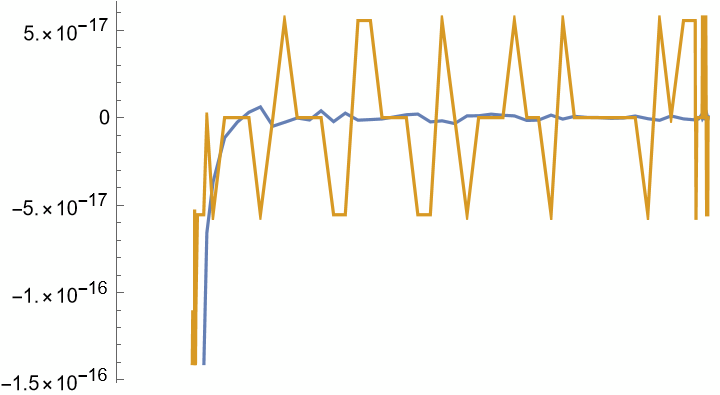I have the following system of Ordinary Differential Equations (ODEs) together with initial values
ode = {-4 * (1 + u * a[u]) * f'[u] == (a[u]^3 + 1/4 * a[u] + (3 a[u]^2 + 1/4) * u * a'[u]) + 2 (a[u] + u * a'[u]) * f[u],
a'[u] == 1/2 * u * f'[u],
a[0] == -1/2, f[0] == 0}
which can be easily solved numerically:
{ra, rf} = NDSolveValue[ode, {a, f}, {u, 0, 20}]
and asymptotically for $u\rightarrow0$.
AsymptoticDSolveValue[odetph, {a[u], f[u]}, {u, 0, 3}]
(* {-(1/2) + u^2/64 + u^3/128, u/16 + (3 u^2)/128 + (3 u^3)/512} *)
But I need to know an asymptotic expansion of a[u] as $u\rightarrow\infty$. Even the coefficient of the lowest order term $\sim 1/u$ would be very nice to know. Is there a trick to obtain such a solution with MA?

